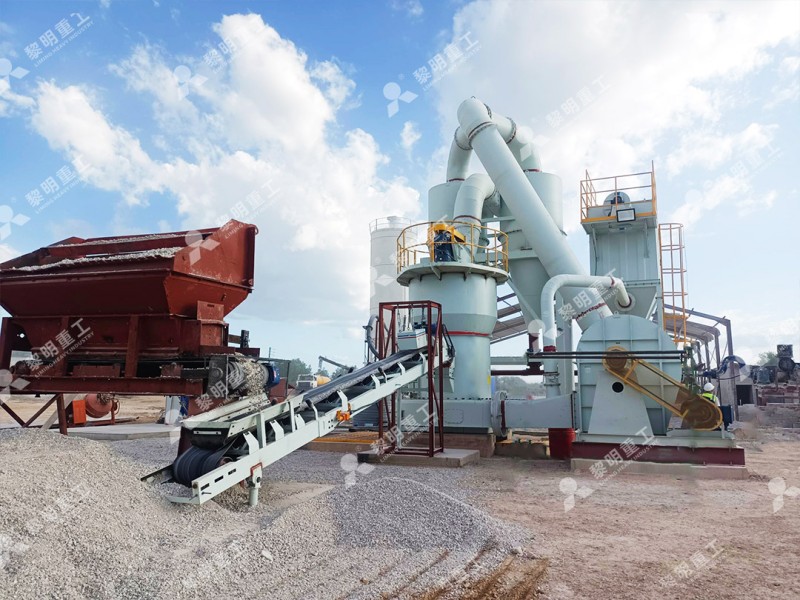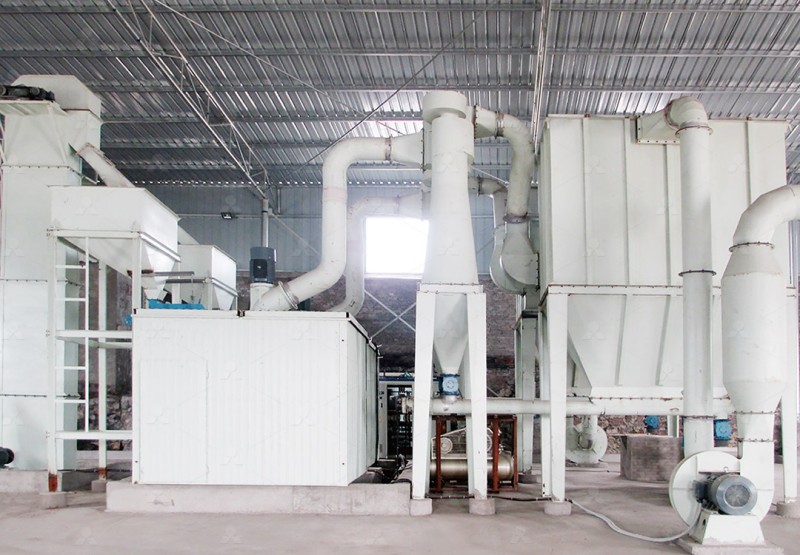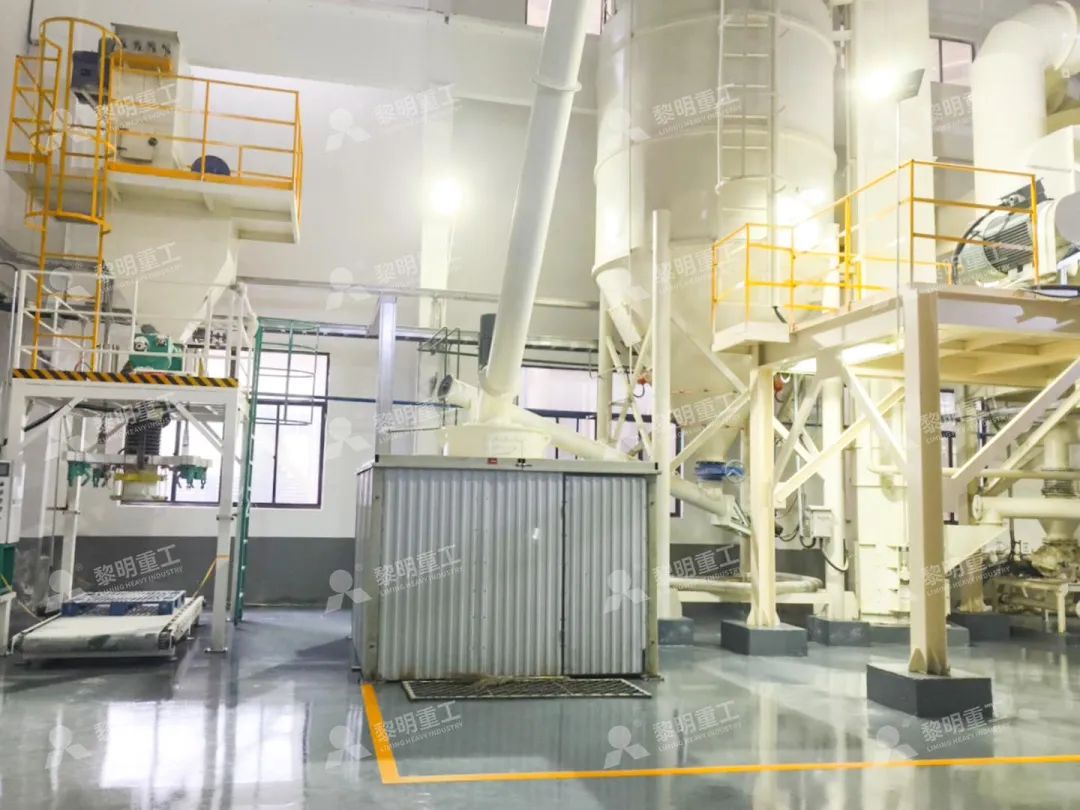1000 Mesh Asbestos Grinding Mill: High-Fineness Processing Equipment
We provide a wide range of mills — including Raymond mill, trapezoidal mill, vertical mill, ultrafine mill, and ball mill, obtained ISO9001 international quality certification, EU CE certification, and Customs Union CU-TR certification. Suitable for processing minerals such as limestone, phosphate, quicklime, kaolin, talc, barite, bentonite, calcium carbonate, dolomite, coal, gypsum, clay, carbon black, slag, cement raw materials, cement clinker, and more.
The discharge range of these mills can be adjusted to meet specific processing needs, typically from 80-400 mesh, 600-3250 mesh, and can achieve the finest particle size of up to 6000 mesh(D50).
If you are looking for a reliable grinding solution to turn stone or minerals into fine powder, please feel free to contact our online customer service.
Unlocking the Potential of Asbestos Processing with Advanced Grinding Technology
In the world of industrial mineral processing, achieving ultra-fine particle sizes while maintaining operational efficiency represents a significant technical challenge. For asbestos processing specifically, the ability to consistently produce 1000 mesh fineness requires specialized equipment designed with precision engineering and innovative grinding principles.

The transformation of raw asbestos fibers into high-value industrial products demands grinding solutions that can handle the material’s unique fibrous structure without compromising on particle distribution or production throughput. Traditional grinding approaches often fall short when targeting the 1000 mesh range, leading operations to seek more advanced milling technologies.
The Technical Demands of High-Fineness Asbestos Processing
Processing asbestos to 1000 mesh specifications presents several distinct challenges that conventional mills struggle to address effectively. The material’s fibrous nature requires careful handling to prevent degradation while achieving the desired fineness. Additionally, the health and safety considerations surrounding asbestos processing necessitate completely sealed systems with advanced dust collection capabilities.
Modern asbestos grinding operations require equipment that can deliver:
- Consistent 1000 mesh output with narrow particle distribution
- Completely enclosed systems to prevent fiber release
- Energy-efficient operation to control processing costs
- Minimal maintenance requirements for continuous operation
- Adaptable fineness adjustment for different product specifications
Advanced Grinding Solutions for Modern Applications
For operations targeting the 1000 mesh range for asbestos processing, our MW Ultrafine Grinding Mill represents a technological breakthrough. This specialized equipment handles input sizes from 0-20 mm with production capacities ranging from 0.5 to 25 tons per hour, making it suitable for both pilot projects and full-scale industrial operations.

The MW series incorporates German cage-type powder selector technology, enabling precise fineness adjustment between 325-2500 meshes with exceptional consistency. This capability is particularly valuable for asbestos applications where product specifications may vary between different industrial uses. The mill’s innovative design eliminates rolling bearings and screws within the grinding chamber, addressing common failure points that plague conventional grinding equipment.
Another exceptional option for high-fineness asbestos processing is the LUM Ultrafine Vertical Grinding Mill, which combines Taiwanese grinding roller technology with German powder separation systems. With an input size capability of 0-10 mm and throughput of 5-18 tph, this mill excels in applications requiring precise control over particle morphology and distribution.
Operational Advantages in Real-World Applications
The practical benefits of advanced asbestos grinding technology extend beyond mere particle size reduction. Operations utilizing the MW Ultrafine Grinding Mill report production capacity increases of up to 40% compared to jet milling systems, while simultaneously reducing energy consumption by approximately 30%. This combination of higher throughput and lower operating costs significantly improves return on investment for processing facilities.
The integrated pulse dust collection system ensures that asbestos processing meets the most stringent environmental and safety standards. Combined with noise reduction technology, these mills create working conditions that protect both operators and the surrounding environment from potential contamination.

Future-Proofing Your Asbestos Processing Operation
As industrial standards evolve and product specifications become more demanding, investing in grinding technology capable of exceeding current requirements provides significant competitive advantage. The digital processing and numerical control manufacturing of modern mills ensure consistent performance and simplified maintenance, while the availability of genuine spare parts guarantees long-term operational reliability.
The flexibility to process various materials beyond asbestos—including limestone, calcite, dolomite, and other industrial minerals—further enhances the value proposition of these advanced grinding systems, allowing operations to diversify their production capabilities as market conditions change.
Frequently Asked Questions
What makes the MW Ultrafine Grinding Mill suitable for 1000 mesh asbestos processing?
The MW mill’s advanced cage-type powder selector and precision grinding curve design enable consistent production at 1000 mesh specifications. The completely enclosed system prevents fiber release, while the absence of internal bearings and screws eliminates common maintenance issues.
How does the energy consumption compare to traditional grinding methods?
The MW Ultrafine Grinding Mill reduces energy consumption by approximately 30% compared to jet mills and 50-60% compared to ball mills, while simultaneously increasing production capacity by up to 40%.
Can the same equipment process materials other than asbestos?
Yes, both the MW and LUM series mills are designed for versatile application across multiple industrial minerals including limestone, calcite, dolomite, gypsum, barite, and talc, providing operational flexibility.
What safety features are incorporated for asbestos processing?
The mills feature completely sealed grinding chambers, efficient pulse dust collectors, and negative pressure operation to prevent any material release. Additional noise reduction technology creates safer working environments.
How is fineness adjustment accomplished?
Both mills incorporate advanced powder separation technology that allows operators to precisely adjust fineness between 325-2500 meshes through straightforward control system adjustments, enabling quick response to changing product specifications.
